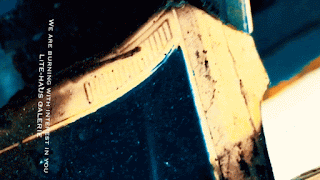Burmese satirists behind bars
By YE MON | FRONTIER
PRIME MINISTER U Nu, a former anti-colonial dissident who led Burma
in the early years of independence, was once at the receiving end of a
biting satirical skit by a group performing the traditional art of thangyat, according to veteran poet Maung Thway Thit. “The people thought the troupe would be arrested after U Nu invited
them on stage to perform. Their verse contained very strong criticism,”
Maung Thway Thit said. “But U Nu gave them a prize instead. There has
never since been another leader like him.”
The Tatmadaw’s recent decision to initiate legal action against
members of a thangyat troupe in Yangon has shown that Myanmar’s
military, which retains considerable governing powers as well as
influence over the judiciary, is incapable of emulating the tolerance of
U Nu, or even of the pre-colonial Bamar kings. With five young performers held in Yangon’s Insein Prison, facing a
trial that could result in prison sentences, the National League for
Democracy government meanwhile has been unwilling to stand up for a
traditional form of expressing free, critical speech.
Censoring witty verse
Thangyat is a form of popular theatre that combines poetry, music and
dance. It was first performed during the New Year festival of Thingyan
under the patronage of the Bamar kings, before colonisation by the
British in the 19th century. The form has always had a subversive edge,
satirising social conditions in the country and the rule and behaviour
of governing authorities. The king and his top ministers were not
spared, despite being absolute rulers.
Like other traditional art forms, thangyat went into decline during
the colonial era, but was preserved by some dedicated artists and
underwent a revival after independence in 1948. Troupes performed on the
ceremonial stages, called mandats, that are erected in public
areas every Thingyan in mid April, and entertained people with witty
verse that spoke directly to their troubles and grievances.
Under the dictatorship of General Ne Win, who seized power in 1962,
thangyat performances were subject to the same censorship as other
creative forms. The words to be used in a performance had to be approved
beforehand by a censor board, which frustrated thangyat’s purpose of
satirising the powerful through verse.
The military junta that took power in another coup in 1988 banned
thangyat outright. Underground performances continued, and the junta
turned a blind eye to some of these, for instance one led by actor and
social activist U Kyaw Thu outside the Yangon home of Daw Aung San Suu
Kyi when she was under house arrest.
The ban was maintained by the Union Solidarity and Development Party
government until 2013, two years after it took office, when it was
permitted albeit with the prior censorship of the verse, similar to the
Ne Win era. Uncensored thangyat was cautiously revived after the NLD
government took office in 2016, though it re-introduced censorship the
following year.
Forbearance’s limit
Maung Thway Thit expressed disappointment that censorship was
occurring under the government of State Counsellor Daw Aung San Suu Kyi.
The NLD government should stand for freedom of expression, he said.
His comments came after the Tatmadaw filed criminal complaints
against multiple members of a youth thangyat group in Yangon called
Daung Doh Myo Sat, which means Peacock Generation, for allegedly
defaming the military in their Thingyan performance, which they did on
the street in order to circumvent the censorship order.
On April 15, Lieutenant-Colonel Than Tun Myint from Yangon Command
lodged the complaint at Mayangone Township Court against Ko Zeyar Lwin,
Ko Paing Ye Thu, Ma Kay Khine Tun, Ko Phoe Thar and Ko Paing Phyo Min
under section 505(a) of the Penal Code. The five have been held in
Insein Prison since a court appearance on April 22.
The Generation of the Peacocks (EXCERPT)
Duration: 05.17 min. Single screen HD
Karl Ingar Røys


